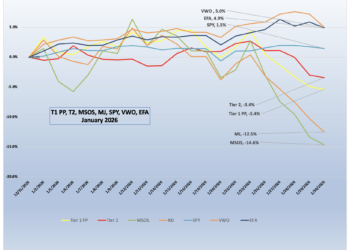New York operators are pushing back against the Office of Cannabis Management’s recent attempt to crack down on what it describes as a reverse licensing scheme.
OCM issued a Notice of Pleading of Omnium indicating that the agency is pursuing charges against Omnium Health for allegedly allowing unlicensed operators to rent their facility to create products that entered the legal adult market. The notice also included a general recall of all products that were made at Omnium’s facility.
“Omnium’s actions violated core principles of our regulatory framework and placed unvetted operators into the heart of New York’s legal market,” said Stephen Geskey, OCM deputy executive director of labs, compliance and licensing, in a statement. “This is a textbook example of reverse licensure, and OCM will not tolerate it.”
Adult-use sales in New York hit a record high over the summer, with $214.4 million in August alone. Of that total, about 3%, or approximately $6.4 million in sales, involved Omnium-linked products, according to OCM.
“The alleged conduct not only risks product integrity, but more harmfully, creates competitive disadvantages for other businesses that play by the rules,” wrote OCM Acting Executive Director Felicia Reid in a LinkedIn statement posted the day after OCM’s announcement. “For this, consequences must echo the conduct.”
Reid said OCM, “to start,” is seeking to revoke Omnium’s processor and distributor licenses and a three-year ban from obtaining a cannabis license in the future. It’s also seeking $1 million in civil penalties and a retail recall of Omnium-linked products.
OCM said it launched its investigation into Omnium in February 2025 following a referral from the agency’s compliance team to the Trade Practices Bureau (TPB). TPB investigators examined audit and inspection records, reviewed contracts between Omnium and the unlicensed businesses, and took testimony from several witnesses.
Omnium operates two locations, one in Hauppauge and one in Lindenhurst. The company did not respond to voicemail requests for comment.
Grӧn threatens to sue
OCM’s notice did not include a list of products of other companies affected, with the exception of Mfused, which allegedly rented Omnium’s license and facility to make vapes. Mfused is licensed in Washington as Jaym Enterprises.
OCM’s recall website only lists recalls from June and July, neither of which involved Omnium Health.
The New York Times reported that retailers pulled approximately $30 million in products from its shelves in April, mainly from Mfused and California-based Stiiizy. But stores were allowed to continue selling products from manufacturers such as Grӧn and Cookies.
Grӧn threatened to sue the state if its products are included in the massive recall. Oregon-based Grӧn currently holds an active manufacturer/processor license in New York, according to the CRB Monitor database.
“We have not now, nor have we ever operated in any grey area of the industry, or with any manufacturing processes that were not entirely compliant, traceable and transparent,” Grӧn said in an Oct. 21 statement. “Our relationship with Omnium was short, and during that time Grӧn operated in total compliance with OCM’s regulations, which expressly permit out of state brands to partner with existing New York processing licensees, proving there is zero merit to any story of questionable material being used.”
NY allows white labeling
New York allows licensed processors to partner with out-of-state brands to make their products. This process may involve the outside company lending some of its staff, or the processor giving access to certain members of the out-of-state company’s staff. The practice is known as white labeling, which is similar to how grocery stores offer generic brand items.
New York splits its processor licenses into three separate types. Type 1 is for extraction, Type 2 is for infusing and blending, while Type 3 is essentially a branding license. Type 3 allows out-of-state companies with known brands to work with New York processors to make products on behalf of the Type 3 license holder, using the latter operator’s branding and often production methods.
So far, the state has issued 132 Type 3 processor licenses exclusively intended for branding agreements, with 117 more for packaging and branding as part of white label deals.
Aside from how OCM is conducting its crackdown, operators have been clamoring for action to curb the state’s illicit and grey markets.
“By allowing illicitly produced flower, oils, and concentrates to penetrate regulated supply chains, inversion reintroduces risks of contamination, adulteration, and fraud. It also undermines fair competition, enabling unscrupulous operators to profit at the expense of compliant businesses,” wrote the Empire State Green Standard Alliance in an Oct. 8 white paper about New York’s inversion problems.
New York’s adult-use market launched on Dec. 29, 2022. Since then, the state has yet to require operators to use a track and trace system. Originally, the state signed a contract with BioTrack, which was supposed to take effect on Aug. 1 this year. That was later pushed back to Oct. 1, before it was suspended entirely when the state switched seed-to-sale operators from BioTrack to Metrc shortly after the two companies announced a strategic partnership with a possible merger down the line.
The current plan is for the system to go live in late December.












